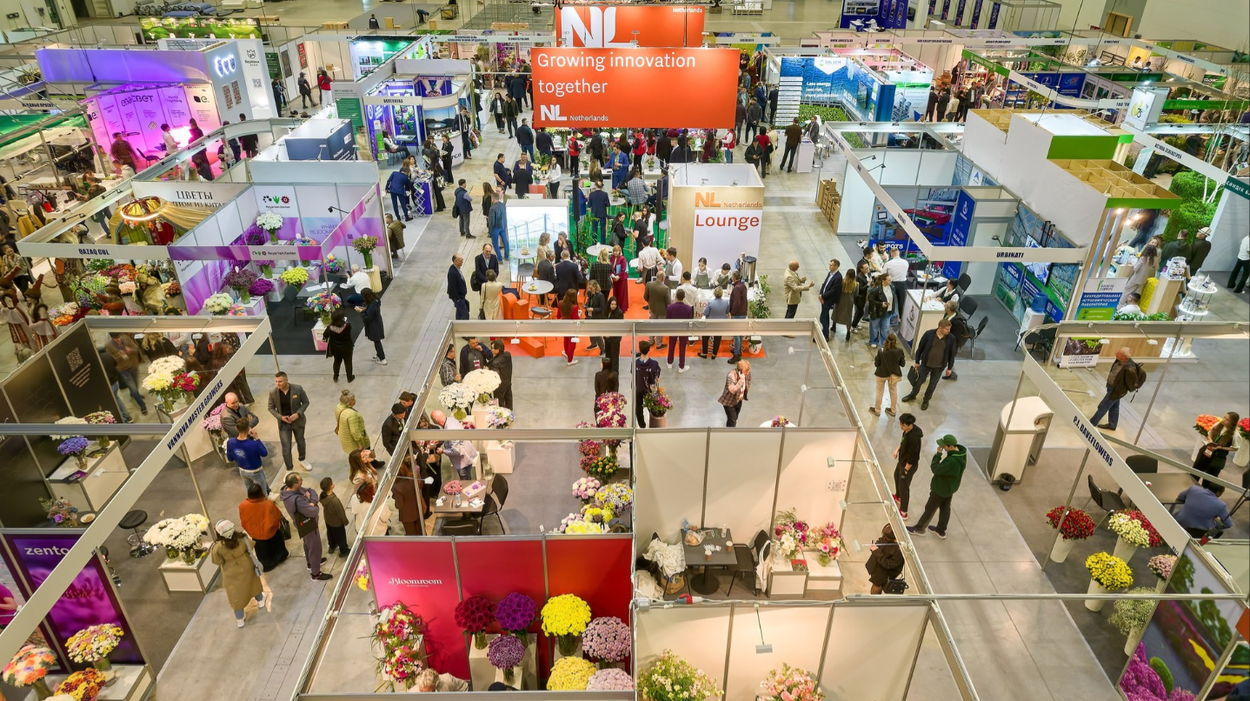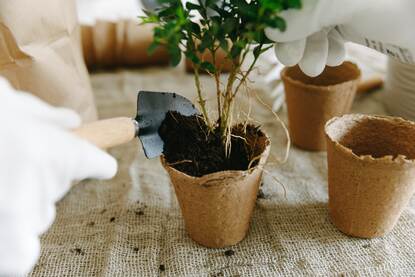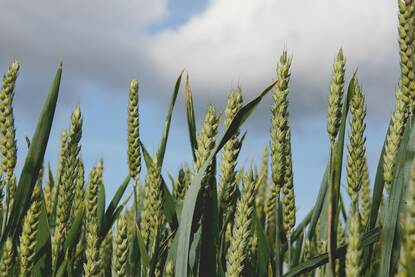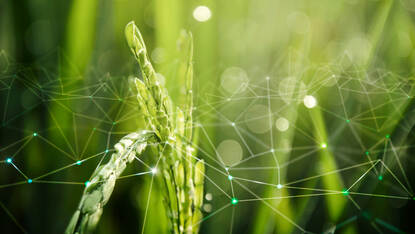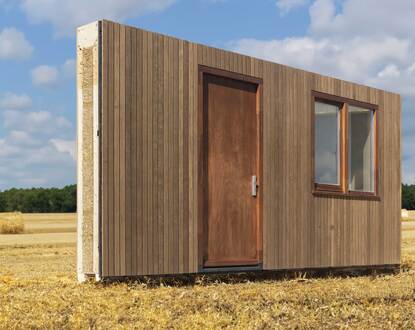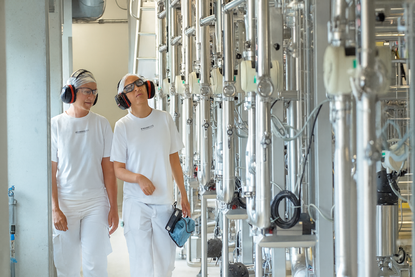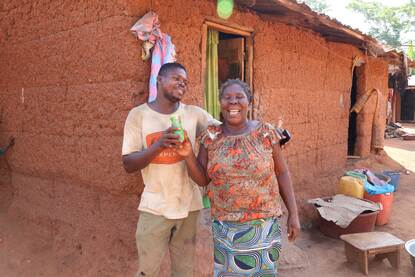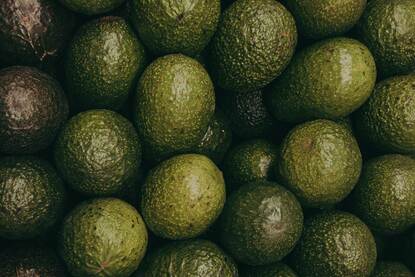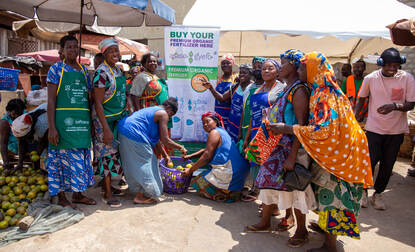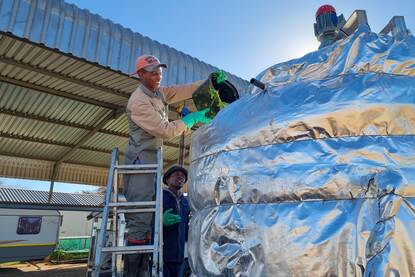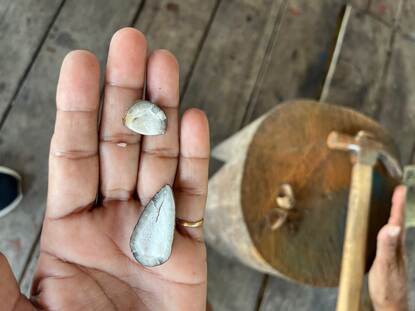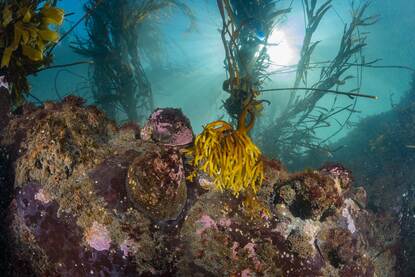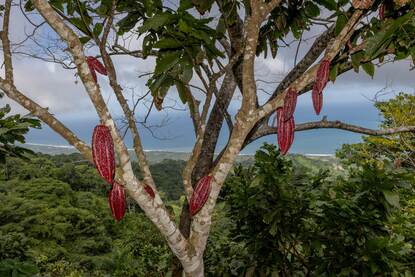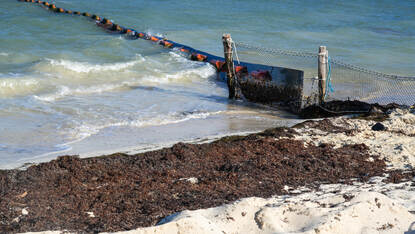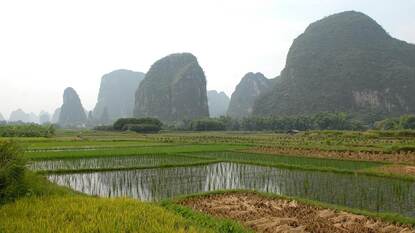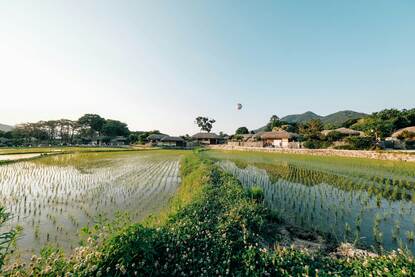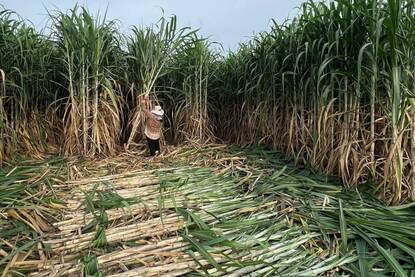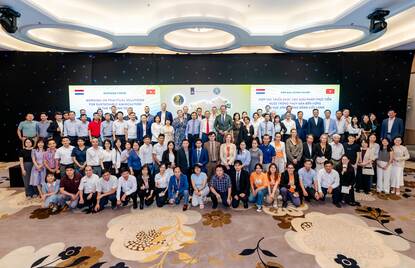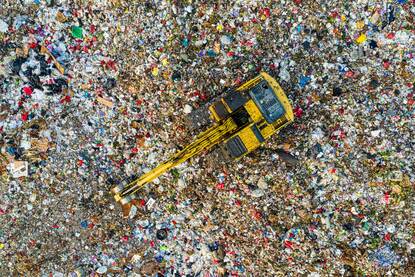Foto The Flora and Grow expo in Astana with a pavilion of the Netherlands in April 2025. Source: Flora Expo Astana
Kazakhstan has the potential to become a key player in the global bioeconomy. The government has linked its long-term carbon neutrality target for 2060 to the development of sustainable food systems, combining climate ambitions with the goal of becoming an exporter of agri- and food products. This creates a strong policy foundation for circular value chains, renewable resource use, and bio-based applications. For the Netherlands, these developments mean opportunities to contribute not only with agrotechnology, but also with expertise, services, and education.
Vast land resources, urgent challenges, and major government investments further open the door for international cooperation. Kazakhstan has nearly the size of Western Europe and 1.5 hectares of cropland per person, giving it a strategic advantage for agricultural development. Yet the country faces challenges such as water shortages, land degradation, and a shortage of skilled labor:
- Water shortage
The United Nations estimates that by 2040, Kazakhstan could face a shortage of up to 50% of its water needs. Agriculture uses nearly two-thirds of all water, mostly for irrigation. Outdated irrigation systems mean that 11–15% of this water is lost during transport. An example of poor water management is the Aral Sea, which has shrunk because of water diversion for cotton cultivation. These water problems threaten biodiversity, affect many parts of society and could pose a serious barrier to Kazakhstan’s transition towards a bioeconomy.
- Land degradation
About 33% of Kazakhstan’s territory is affected by soil erosion, desertification and salinity. Agricultural mismanagement and climate change have caused these problems, leading to lower productivity of farmland.
- Limited agricultural knowledge
Kazakhstan also struggles with a shortage of skilled labor in agriculture and food processing. Only 28% of farm employees have proper training. Combined with limited access to modern machinery, this results in relatively low yields. Therefore, Kazakhstan needs a boost to the development of high-quality agricultural education and knowledge. A combination of Dutch expertise in technology, services and education could contribute to this. Overcoming these obstacles is essential for building a bioeconomy that supports both national growth and global food security.
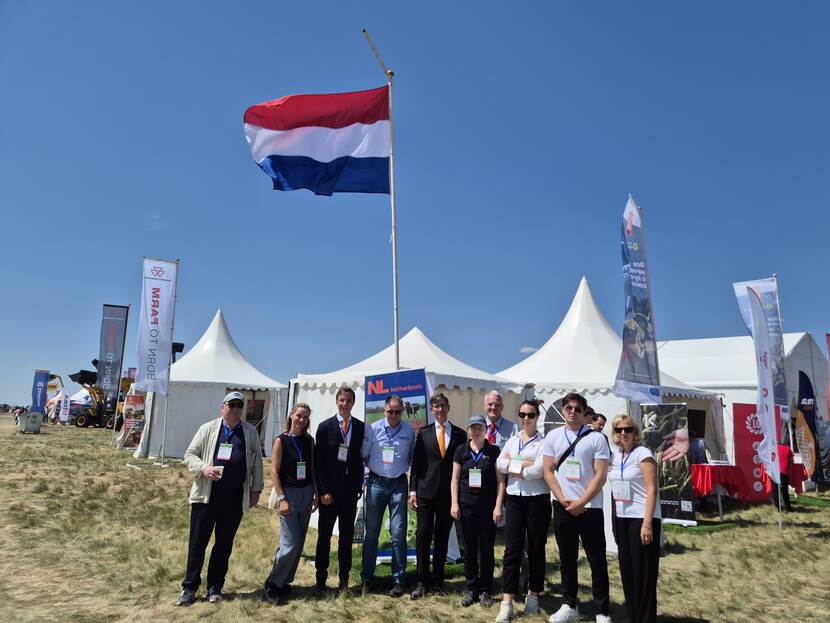
Kazakhstan’s strategic ambitions
The government of Kazakhstan is boosting investment in agriculture with the Strong Agri-Industrial Complex, a €33 billion strategic plan. This initiative aims to double agricultural output from 2024 to 2028. It also seeks to double labor productivity and speed up the adoption of modern agrotechnology. The plan intends to triple the flow of agricultural investments, diversify crop production, and increase the share of processed agricultural products.
In addition, the government has set a vision for carbon neutrality by 2060. Kazakhstan connects this climate agenda directly with the development of sustainable food systems because the country aims to become an exporting nation of agri- and food products.
Building such sustainable food systems requires modern technology to achieve better results with less use of energy sources. To apply these technologies effectively, skilled labor is essential — but there is currently a serious shortage. Without modern sustainable technology, sustainable food systems cannot be developed, and without sustainable food systems, the bioeconomy cannot take shape. This underlines the importance of education and training to build the necessary capacity.
International cooperation
The Netherlands is already cooperating at EU level with partners such as France and Germany (through GIZ), and with international financial institutions including the European Bank for Reconstruction and Development, the World Bank, and the Asian Development Bank (ADB). Within the EU Delegation in Astana, the Netherlands plays a constructive role in sustainable food production initiatives.
Bilaterally, the Kazakhstan-Netherlands agricultural and food country table has been established at a ministerial level, with engagement from the United Nations Food and Agriculture Organization FAO. Together, these efforts provide a strong policy and institutional foundation for Kazakhstan’s transition towards a future bioeconomy.
A key condition for investors in sustainable food system production is having clear perspectives on access to international markets for sustainable food products that meet international standards. This requirement is an integral part of the discussions within the Kazakhstan–Netherlands agricultural and food country table.
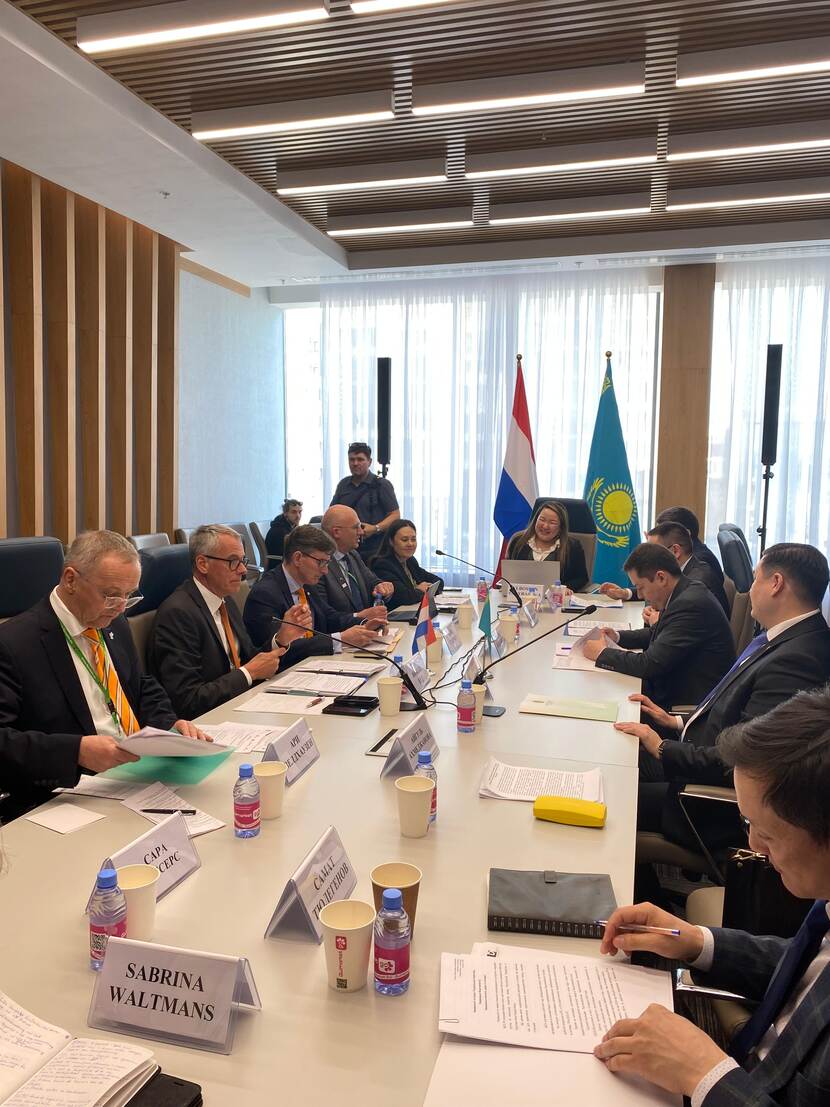
Dutch opportunities in Kazakhstan
Kazakhstan’s ambitions to modernize agriculture and build a bioeconomy open various fields for cooperation. The Netherlands, with its experience in agrotechnology, sustainable resource management, and knowledge exchange, can contribute to this transition in multiple ways.
Livestock development
With targeted investments from the Kazakh government, the livestock sector is gaining importance. More sustainable livestock practices can contribute to circular systems and bio-based applications by processing manure in the dairy industry, increasing milk yields per cow, producing feed crops such as corn on the farm instead of purchasing them elsewhere, and using technologies like milking robots and automatic manure separation.
Efforts to improve animal health, apply modern technologies, and increase resource-use efficiency are progressing, alongside an increasing focus on producing processed agricultural goods. These developments offer opportunities for Dutch expertise in areas such as breeding, technology, sustainable resource management, and veterinary medicine. This can contribute to Kazakhstan’s ambitions, offering clear potential for long-term partnerships with technological support, services and knowledge exchange.
‘Kazakhstan’s ambitions to modernize agriculture and build a bioeconomy open various fields for cooperation’
Resource use efficiency
Recycling biobased resources closely aligns with Kazakhstan’s strategic goals but remains largely undeveloped. Every year, the country produces more than 45 million tons of agricultural waste, most of which is unused. These resources could be converted into biogas or biofertilizers. To make this possible, the right technology and skilled labor are essential. Investments in education and technology only pay off if the resulting products can find a market, which requires clear perspectives on export opportunities.
Products must meet international standards, particularly those of the EU, to be competitive. Dutch expertise and technology in manure management, water recycling, biogas, and biofertilizer application can therefore help drive sustainable growth and support Kazakhstan’s transition towards a revenue-generating bioeconomy.
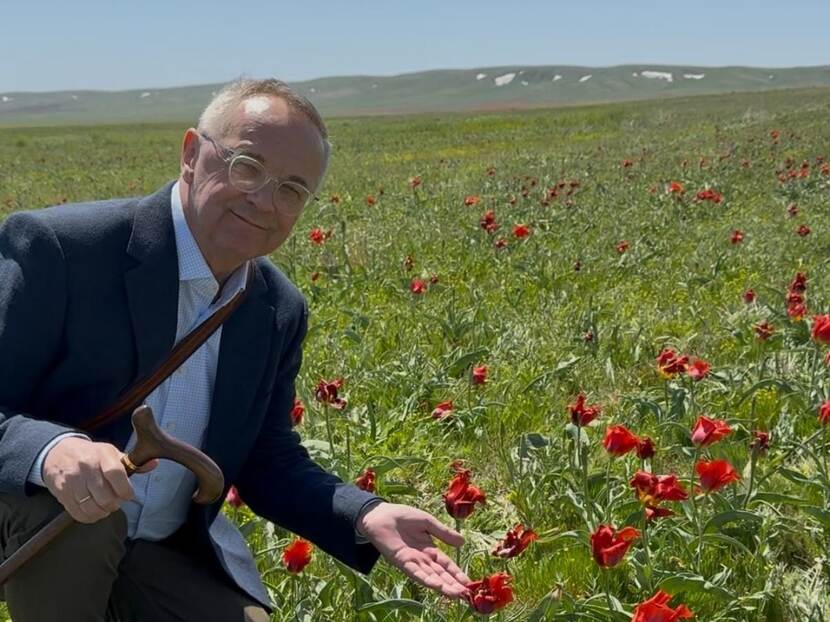
Education and innovation
Exporting Dutch expertise and educational programs offer a strong opportunity to improve agricultural knowledge and skills to Kazakhstan. Training in modern farming techniques can improve farmers' decision-making, encourage innovation, and boost resource-use efficiency. This supports Kazakhstan’s bioeconomy and carbon neutrality goals, where regenerative practices such as soil conservation, advanced irrigation, composting and biomass utilization are essential.
In the food processing industry, the adoption of new techniques, skills, and technology is equally important to raise standards, meet international requirements, and position Kazakhstan as a global agricultural exporter. Dutch expertise can play a long-term role in achieving these ambitions and driving sustainable transformation.
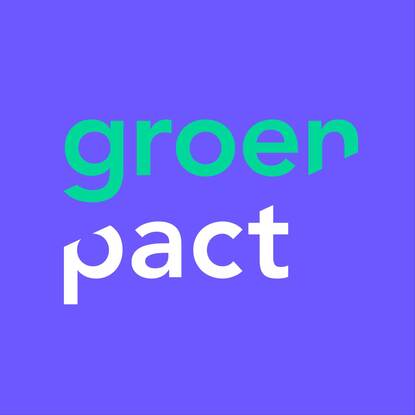
Current initiatives
In July 2025, the Netherlands participated for the first time in the largest open-air agricultural exhibition of Central Asia, Jana Dala. This event focused on agricultural machinery, open-field farming and animal husbandry. More than 200 companies from 22 countries participated. The Netherlands booth included Dutch agricultural companies like Lely, CRV, Van der Ploeg, Barenbrug and Koppert.
The companies showcased innovative methods in the agricultural sector, contributing to sustainable practices for Kazakhstan. Through this exhibition, the Netherlands Agricultural Network (LAN) team in Astana facilitated the opportunity to connect to local farmers, companies and networks, to promote the export of their knowledge and products.
Furthermore, the Kazakh–Netherlands governmental working group – which annually brings together private sector organizations, knowledge institutions, and the two national governments – is an important platform for bilateral engagement. In this context, the previous Secretary-General of the Dutch Ministry of Agriculture, Fisheries, Food Security and Nature Jan-Kees Goet visited Kazakhstan in April 2025 to discuss further steps in the Kazakh-Netherlands cooperation, together with the Netherlands Educational Platform Groenpact and 40 companies from the flower sector and the greenhouse sector.
As a follow up, the LAN team is supporting the organization of a Dutch pavilion and seminar at the Agroworld exhibition in Kazakhstan’s biggest city Almaty to be held in October 2025. Here, the Netherlands’ poultry sector will present its latest innovations to improve resource efficiency. During this event, the Dutch Poultry Centre and the Kazakh Poultry Union will sign a Memorandum of Understanding (MoU).
Unique selling point of the Netherlands
Developing a bioeconomy in Kazakhstan requires a systemic transition: from focusing only on output to creating circular chains where biomass is valorized, agriculture and energy are connected, and sustainability drives growth. Currently, suppliers from neighboring countries provide technological systems for the agricultural and food sector to Kazakhstan. They offer fast logistics, low costs, and the quality of their products is increasing. However, they do not offer services and education in relation to these supplies.
To improve the Netherlands’ position and enable more Dutch companies to engage successfully in Kazakhstan, more focus should be on delivering a comprehensive, high-quality package of technology, services, and education. Dutch innovation and education not only have the potential to support the development of a sustainable bioeconomy in Kazakhstan but also play a crucial role in Kazakhstan’s sustainable contribution to global food security.
‘The Dutch focus should be on delivering a comprehensive, high-quality package of technology, services, and education’
Netherlands Pavilion at KazAgro – KazFarm 2025
KazAgro and KazFarm 2025 are Kazakhstan’s leading agricultural exhibitions, bringing together professionals from crop production, agri-technology, animal husbandry, and the meat and dairy industry. The event offers a platform to exchange knowledge, explore innovations, and connect with decision-makers and enterprises in the heart of Kazakhstan’s agro-economy.
Kazakhstan is expanding its agricultural sector with large land resources, growing domestic demand, and government support for agro-industrial development. The exhibitions highlight opportunities to engage with this evolving market.
The Netherlands Pavilion will present a joint presence of Dutch companies, offering shared visibility, high-quality stand facilities, and on-site support to facilitate networking and cooperation.
Event details
-
22–24 October 2025
-
Astana, Kazakhstan
For more information and registration, please consult the agenda on the country page of Kazakhstan at the website Agroberichtenbuitenland.nl.
More information
Would you like to know more about bioeconomy in Kazakhstan and Central Asia? You can visit the country pages of Kazakhstan, Uzbekistan and Kyrgyzstan at the website Agroberichtenbuitenland.nl of the Dutch Ministry of Agriculture, Fisheries, Food Security and Nature. You can also send an e-mail to the LAN team at the Dutch Embassy in Astana: AST-lvvn@minbuza.nl.
